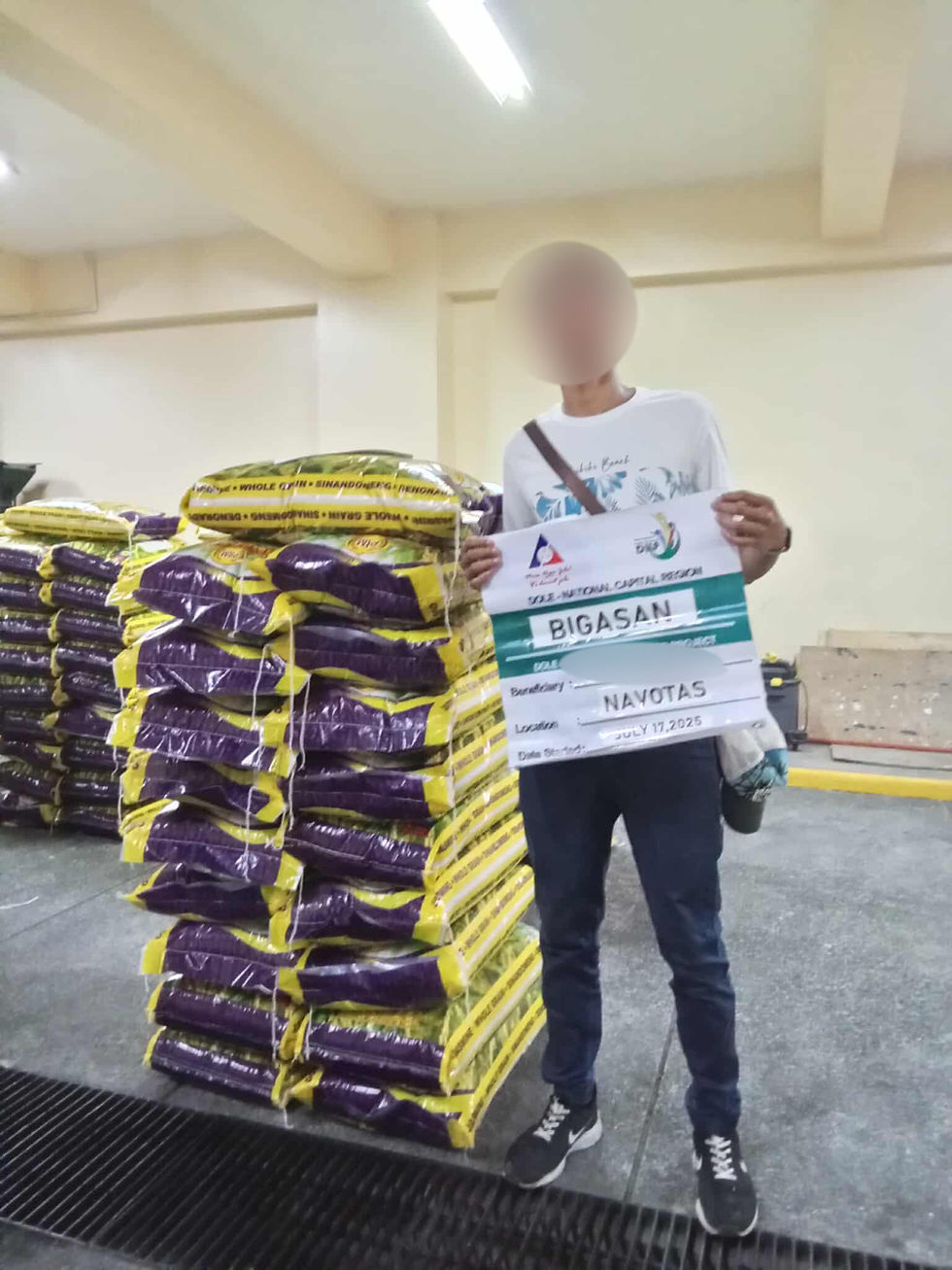A Livelihood of Second Chances: Jonel's Story
- Raymund Narag

- Jul 24, 2025
- 3 min read
Updated: Aug 15, 2025
(Stories of Hope, Resiliency and Restoration - English)
Jonel stayed in jail for years. Another name in the long ledger of the forgotten, another soul lost in the cracks of a justice system that punishes not just the guilty, but the poor. He was released not by the system that jailed him, but by the kindness of strangers—through our Community Bail Bond Philippines program. We bailed him out. And eventually, the case was dismissed. He was acquitted on March 6, 2024.
But as many of us who have walked this path know, acquittal is not the end of the struggle. In fact, it is often the beginning.

Jonel had a family to feed. He worked full time, but the numbers never added up. He paints ships for a living—gritty, backbreaking work—but with mouths to feed and bills to pay, it was never enough. And so, on April 5, 2025, he reached out to us again. This time not for legal help, but for something just as vital: a chance to rebuild.
He asked for a motorbike. He had dreams of being a Grab rider, a Lalamove rider—any rider, really. He saw how we had helped another former client get back on his feet and hoped the same was possible for him. But our program was already stretched thin. So we told his story on social media.
And sometimes, that’s all it takes: a story, honestly told, finding the right ears.

Regional Director Erwin N. Aquino of the Department of Labor and Employment (DOLE) heard that story. Based in Region 4A in Calamba, Laguna, he saw a man, not a statistic. And though Jonel lived far away in Navotas, Director Erwin did what good public servants do—he reached out across jurisdictional lines. He referred Jonel to Ms. Rowie Grande, Director 2 of the DOLE CAMANAVA Field Office and said: kindly help this man.
The very next day, April 6, Jonel went to the DOLE office. He brought his ID. His release order. I told him: go early, dress decently, speak clearly. And he did all that.
The barangay office was closed—it was fiesta time—so he couldn’t get a residency certificate. But he was resourceful. He explained his situation to the guard, who, bless him, took his ID and made sure he was logged in. Jonel eventually spoke with a lady staff member who walked him through the form, answered every question, calmed every doubt. He was unsure. He was sweating. But he filled up the forms and completed the requirements.
It wasn’t the motorbike he hoped for. It was something better.
After the evaluation, he was told: you’ll receive Php 30,000 worth of support. Not cash—but a chance to run a small business. He would be trained. He would be asked questions: how will you store the sacks of rice? How will you sell them? How will you grow?
He called me with excitement. I told him: remember her name. Remember her kindness. Government programs don’t work in theory. They work because people—real people—make them work.
Director Erwin followed up. Jonel followed up. On April 21, he called me again. No update yet. On June 6, he called again. Still none. The lady officer hadn’t called back. But he was patient. We told him: it will take time.
Then, on July 16, 2025 the call finally came.
His livelihood program was approved. He was told to come to the office at 10 a.m. and pick up the sacks of rice. He had been trained while waiting—on how to budget, how to store, how to sell, how to scale.
That, right there, is the story. A story of patience. A story of perseverance. A story of navigating a government system that, yes, often feels indifferent, but also—often—works because of people with golden hearts.
From a regional director who saw beyond his jurisdiction. He initiated and made the project move. To a local director who acted on a recommendation. She made sure it progressed. To a staff member who processed papers with care. This is the real hardwork. To a guard who made sure a request didn’t get lost in the shuffle. That is a miracle. These are the people who make things happen.
There are many like Jonel. And there are many programs like DOLE’s Kabuhayan that they can access. But not everyone knows. Not everyone gets through. Not everyone is as lucky.
This is why we must improve how we support released persons deprived of liberty. We’ve said it before: release is not reintegration. We need halfway houses, job placement services, accessible health and legal aid, and—critically—livelihood support that doesn’t demand the moon.
Let Jonel’s story be more than a story. Let it be a model. A promise. That second chances aren’t charity—they’re justice.
And justice, after all, is what we all claim to believe in.
---
Learn more about Jonel's story in this earlier article



Comments